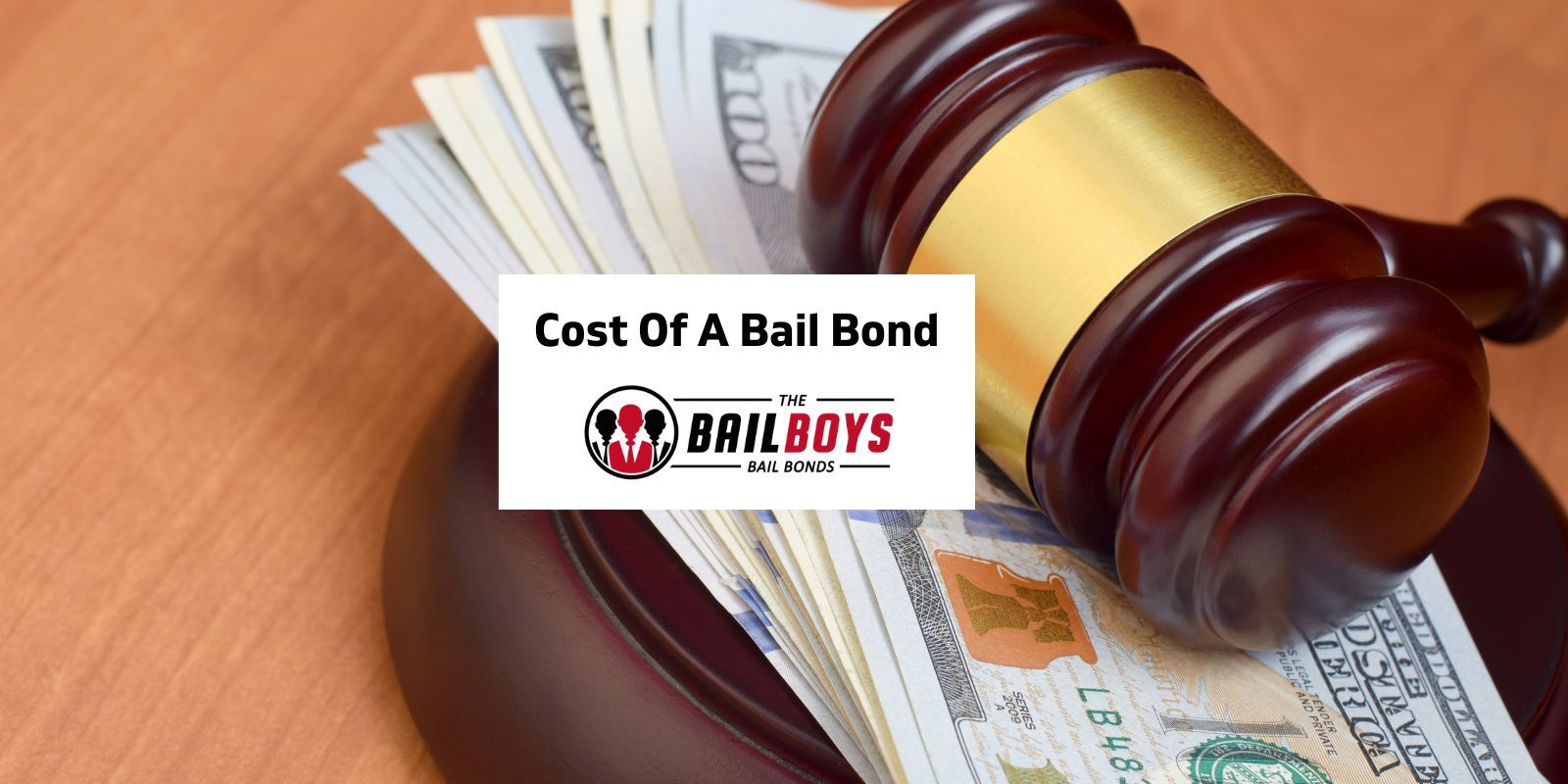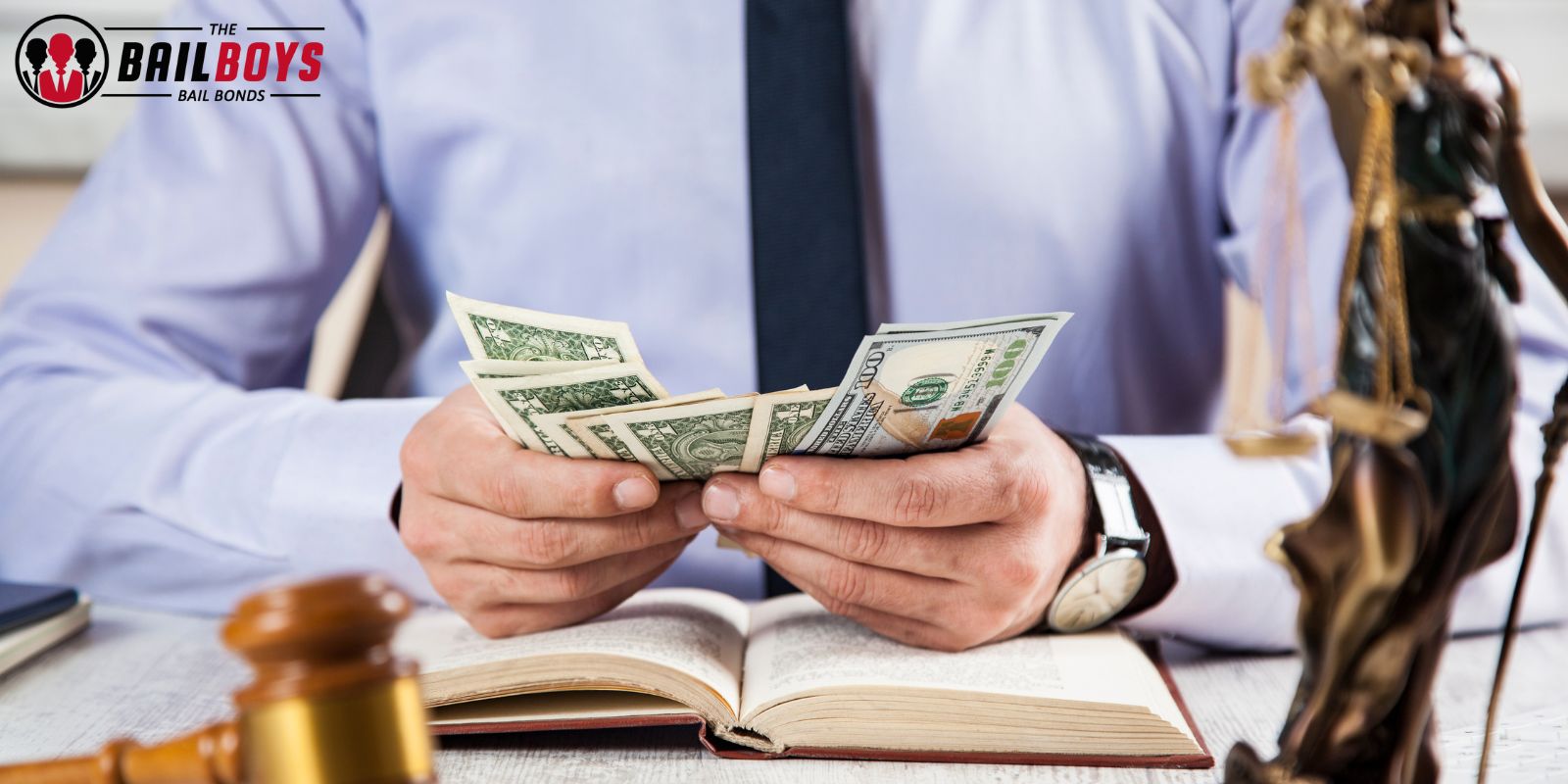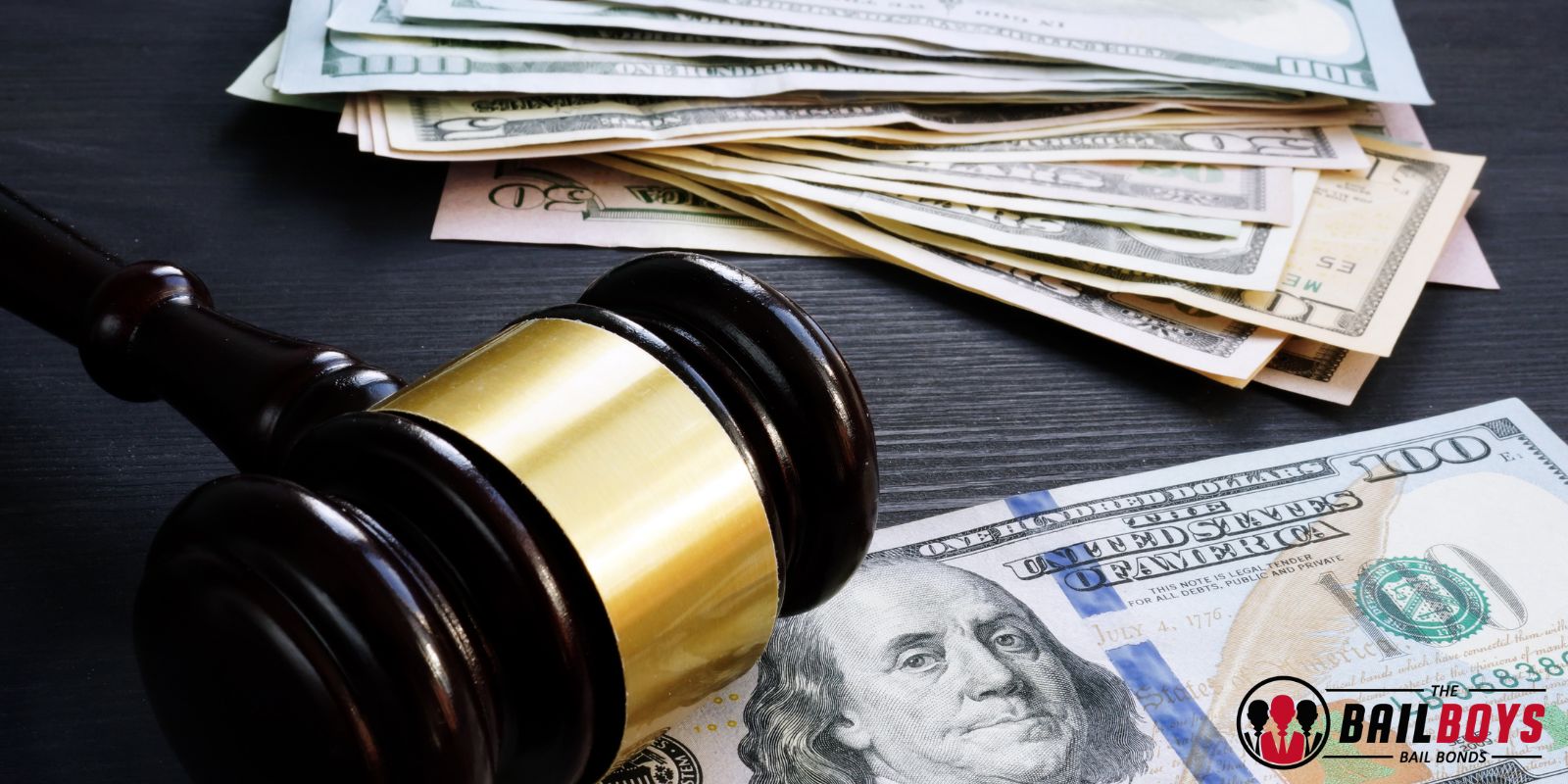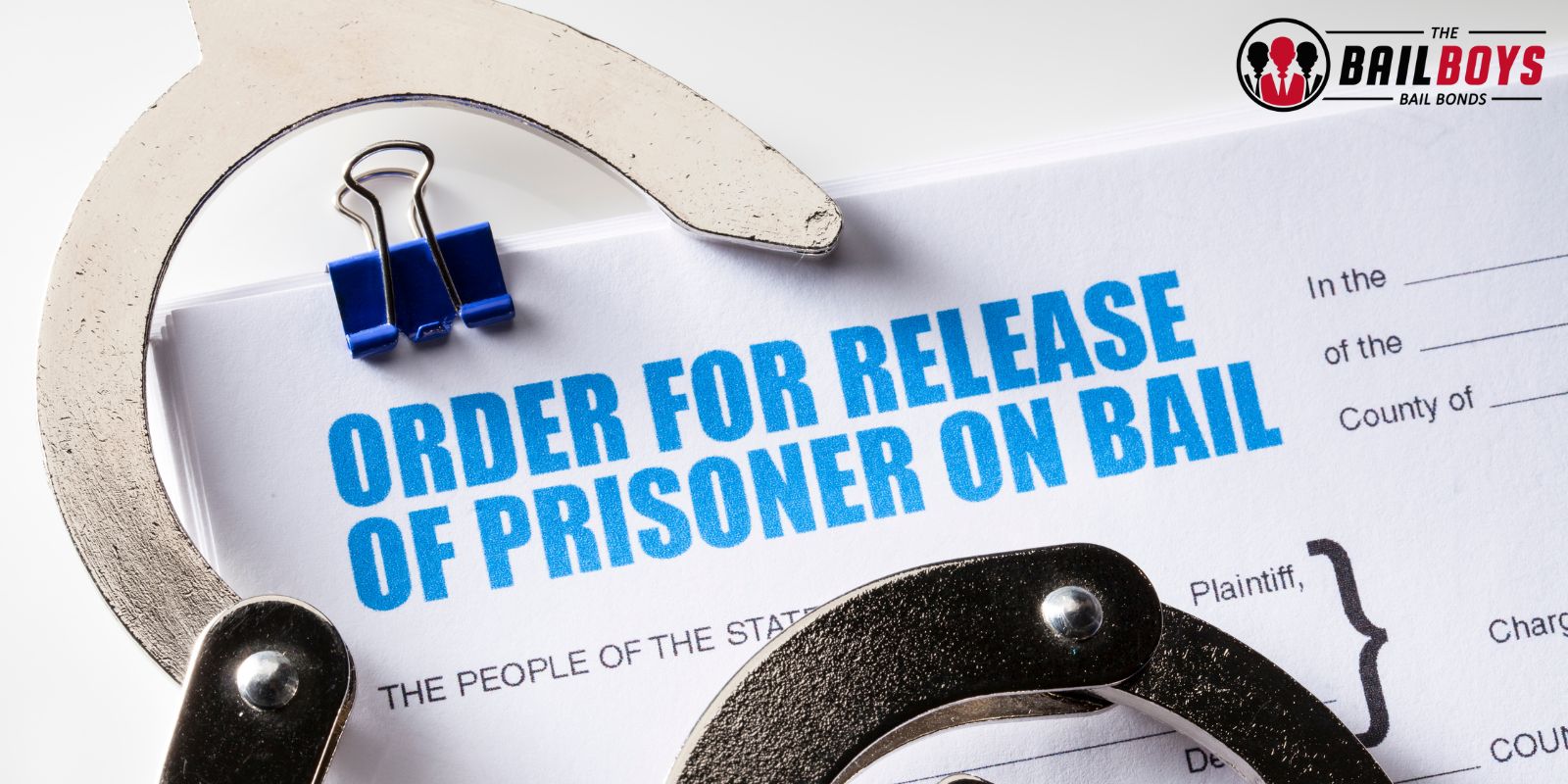
How Much is a Bail Bond?
Navigating the legal system when a loved one lands in jail can be challenging. Some of the most common questions we get asked as a bail bonds company is “How much is bail?” or “What does a court bond cost?“. This article discusses financial aspects of California’s bail system and provide clarity on specific numbers for common bail amounts.
An arrest can be a disturbing and traumatic event, further compounded by unexpected costs. Beyond the impending fines and court fees, there’s a critical financial component – bail money – that you need to amass if you hope to keep your loved one out of jail before their court date.
So, How Much Does a Bail Bond Cost?
The bail bond costs are not one-size-fits-all; they vary with each unique case, sometimes even allowing for bail bonds with minimal or no upfront cash. But rest assured, this article aims to illuminate the complex terrain of bail bonds in California and shed light on the potential expenses tied to these bonds. If you’d rather discuss your specific situation over a free phone consultation with an experienced bail bondsman, don’t hesitate to reach out to us at (866) 914 0936.
Otherwise, keep reading and let’s break down all the essential information you need regarding California’s bail bonds. Take a deep breath and let’s jump right in.
So, What Is a Bail Bond?
Before we discuss how much does it cost to bail someone out of jail, let’s first understand what a bail bond is. According to The California Department of Insurance (CDI), A bail bond is a “surety bond, which a bail bond company posts to the court as a guarantee for an arrestee’s appearance at all court dates.” A bail bond company can step in as a third party and provide the money for bail to help secure the accused person’s freedom if they or their loved one cannot afford it.

How Much Does it Cost to Bail Someone Out of Jail
Understanding the cost to bail someone out of jail can be complex, particularly because it is determined on a case-by-case basis. In California, the cost of bail is set according to a county bail schedule and can significantly vary depending on the severity of the charges. For instance, a minor misdemeanor may warrant a bail amount of a few thousand dollars, whereas a severe felony could escalate the amount to hundreds of thousands of dollars.
However, most individuals do not pay the full bail amount directly to the court. Instead, they often utilize the services of a bail bondsman. In California, a bail bonds agency typically charges a premium of 10% of the total bail amount. This fee is non-refundable, even if the defendant is found not guilty or the charges are dropped.
To put this into perspective, if the bail is set at $250,000, you would pay a bail bondsman $25,000 to secure the release of your loved one. Similarly, for a bail amount of $150,000, the fee would be $15,000. Remember, these figures are premiums for the bail bond service and not the actual bail amounts.
It’s also crucial to note that in some cases, collateral may be required in addition to the 10% fee. The collateral is designed to cover the full bail amount should the defendant fail to appear in court. Collateral can be in the form of real estate, vehicles, jewelry, or other assets of value.
If bail is $250,000 how much do I pay?
If the bail amount is set to $250,000, you’ll pay $25,000. This is 10% of $250,000. The $25,000 is a non-refundable fee that you’ll give to the bail bondsman to help secure the release of your loved one.
When Mr. A reached out to us to help secure the release of his nephew, we asked for the total bail amount. We made him understand that we take a 10% fee according to the law.
Since the bail amount was set to $250,000, he paid us $25,000. Be like Mr. A and reach out to us today to help secure the release of your loved ones and relatives. We are usually transparent in all dealings with our clients.
If bail is $150,000 how much do I pay?
If the bail amount is $150,000, you’ll be paying 10% which is %10,000. As a bail bonds company, we charge a 10% non-refundable fee on the total bail amount.
We are compliant with the law in charging 10% and we strive to be fair and honest with all our clients. Reach out to us today to enjoy a seamless process in securing the release of a loved one.
How Much Is a Bail Bond in California?
If bail is $250,000 or $150,000, how much do I actually pay? Bailing someone out of jail can be expensive, but is typically lower for minor charges and higher for severe crimes. In California, a bail bond is 10% of the total bail amount. If the bail amount is $40,000, the cost would be $4,000 to bail someone out of jail. The California Department of Insurance sets the bail percentage.
Important Note: If a bail bond company tries to charge you more or less than 10%, proceed cautiously because California law sets and regulates this amount.
Common Questions About Bail and Bail Bond Costs:
How Is Bail Determined?
There are several factors which impact how someone’s bail is determined.
- Criminal history: A defendant with an extensive criminal history will receive a higher bail amount than a defendant who is a first-time offender.
- Flight risk: If there’s a chance that the individual will flee before their court date, bail will be set higher than for someone that isn’t a risk.
- Family obligations: The Judge will consider whether the defendant is a parent, spouse, or caregiver when setting bail.
- Community connections: Individuals with strong connections to the community may receive a lighter bail than those who are not well connected.
- Public safety risk: The public safety risk factor will determine whether bail is granted to the defendant and the amount at which bail is set.
Types of Bail in California
Several factors determine which type of bond applies to your case. A judge determines the amount based on the alleged crime, the accused individual’s prior offenses, and the jurisdiction of the arrest. Certain types of bail bonds are used in rare cases, while others are more frequently used.
The most common types of bonds include:
- Unsecured Bonds
- Cash Bonds
- Property Bonds
- Bail Bonds
Unsecured Bond
No money is required upfront. Instead, the defendant agrees to pay the court the bail bond amount if they do not appear on the specified court date. This type of bond can be risky because there is no collateral to back it.
Cash Bond
The defendant, family member, or friend pays the entire bond amount in US dollars, known as cash bail. In recent years under California’s current bail system, cash bail is not required for some defendants. Each county in California has its own list of crimes and associated bail amounts.
Property Bond
Are you willing to pledge the value of your home to a loved one? In this instance, the court secures a lien against your property instead of cash. The courts may seize the property if the defendant fails to appear in court. For the judge to approve this type of bond, the property must be significantly more than the bail. In California, the property must have equity that is at least 150% of the total bail amount.
Bail Bond
Posting bail is commonly accomplished through a Bail Bond. Unless you have a large amount of money, or a large amount of property, most people cannot post bail. This system has been in effect for many decades all around the world.
Is Bond the Same As Bail?
It’s essential to understand the difference between bail and bond. Although used interchangeably, both words have a different legal meaning. Bail is the amount of money the defendant pays to the court and it’s returned at the end of the trial if all requirements are fulfilled. A bond s a pledge to make good on bail. If a bail bondsman is needed, this third party agrees to be responsible for the money if the defendant fails to appear in court.
When Should You Call a Bail Bond Firm?
For over 20 years, we have been helping people throughout Southern California post bail. Our team works to make the process affordable and seamless. We sympathize and develop the most effective plan to get you or a loved one out of jail. We always strive to provide the prompt, professional service you need during a difficult time.
Contact The Bail Boys for a free quote. We are ready and available 24 hours a day, seven days a week.




